Marketing faces a data challenge, especially in B2C companies.
However, it’s not about not having enough data.
In fact, they have abundant data.
The hitch is that over 35% of marketers aren’t entirely confident about their data quality.
And over 15% of them are stuck cleaning and organizing their data.
Surprisingly, almost 90% of B2C marketers have seen exceptional results with data-driven marketing.
Most B2C companies recognize that data is critical for their growth.
Nevertheless, more than half of them are struggling with data-related challenges.
The sheer volume of data is just one piece of the puzzle – there’s more to the story.
Today, we’re rolling our sleeves to uncover the root of these data challenges and how B2C marketers can turn their data into a growth engine.
Understanding the Sources and Causes of Data Duplication in B2C CRM Systems
The sources and causes of data duplication in B2C CRM systems are complex and multifaceted. Recognizing these challenges is the first step in addressing the issue of data duplication.
The Multi-channel Marketing Challenge
Enterprise B2C companies are overwhelmed with data due to their diverse marketing channels – like online stores, social media, emails, and physical stores. The problem arises when these different data records point to the same customer, but there’s no system to combine or filter them. Leads can enter without any identity checks, leading to the creation of multiple records for the same person. The absence of oversight compounds this problem of duplicate data – The large volume of leads, often originating from diverse channels, can lead to the unintended duplication of records.
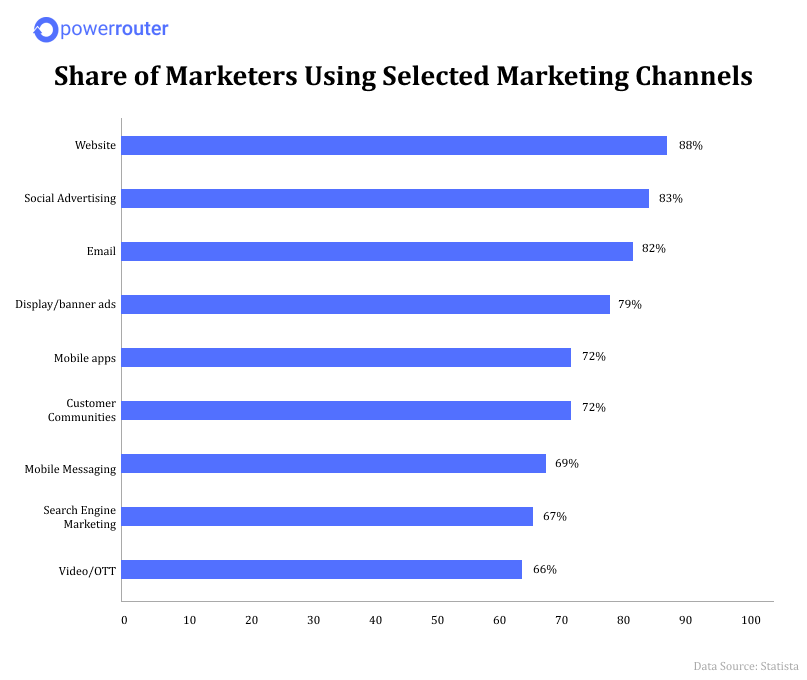
Lack of Standardization
- Data Silos: Many B2C companies work in data silos, where different teams collect and store data independently. It creates data inconsistencies and limits a complete customer view.
- Unique Customer Data: B2C customers are often individual users, each with their own set of contact details, like email addresses and names. These details can be shared among different people, causing complexities like accidentally merging or deleting prospects with similar details.
- Diverse Data Sources: The diversity of marketing channels in B2C makes it hard to set up a consistent data entry process.
- Data Entry Errors: Human errors during data input, such as entering the same customer information more than once, typographical mistakes, or inaccurate input, can lead to data duplication.
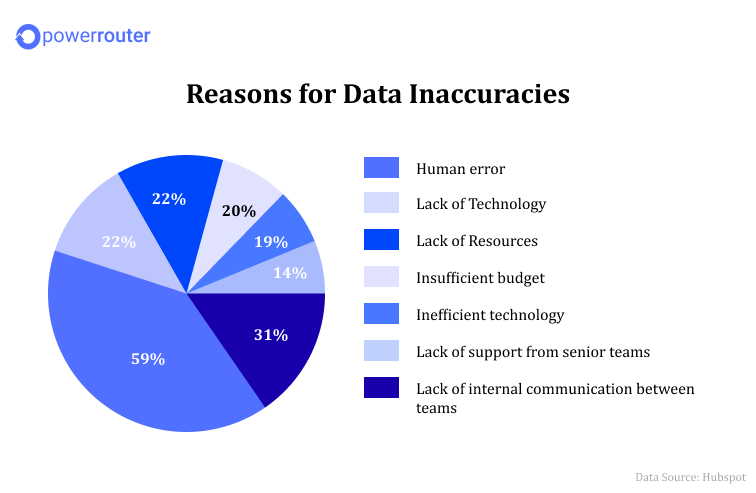
High Volume of Data
B2C companies deal with lots of data every day, and it’s getting more complicated due to diverse data sources, quickly changing technology, and the way teams work with these. Here are a few reasons how high volume of data creates duplicates in your system:
- B2C companies handle tons of information from their customers every day. People often enter data into their systems in a hurry and don’t have time to double-check everything. It creates duplicate data by accident.
- Sometimes, the data is entered in bulk – spreadsheets, databases, you name it. Now, these files don’t always talk the same language. Columns mismatch, data formats go all haywire, and suddenly, duplicates are on the rise.
- When different people and teams use the same system and data, it’s challenging to enforce strict data entry rules leading to duplication.
Nature of B2C Customer
The B2C customer journey doesn’t conclude with a single purchase. Each customer interaction, each sale, serves as a new data point. As customers re-engage, their information—names, emails, and more—finds its way back into CRM systems, increasing the likelihood of duplicate creation. The ongoing customer relationship, while valuable for businesses, poses a distinct challenge when it comes to data management, as the potential for duplicates remains ever-present.
Challenges of Duplicate CRM Data
Inflated Sales Numbers
Duplicate CRM data can severely distort a company’s sales performance metrics. When a single customer interaction is mistakenly recorded multiple times, it artificially inflates the number of recorded “sales.” This misrepresentation not only compromises the accuracy of data but can also mislead businesses into believing their sales strategies are more effective than they actually are, leading to misguided decision-making and unrealized potential.
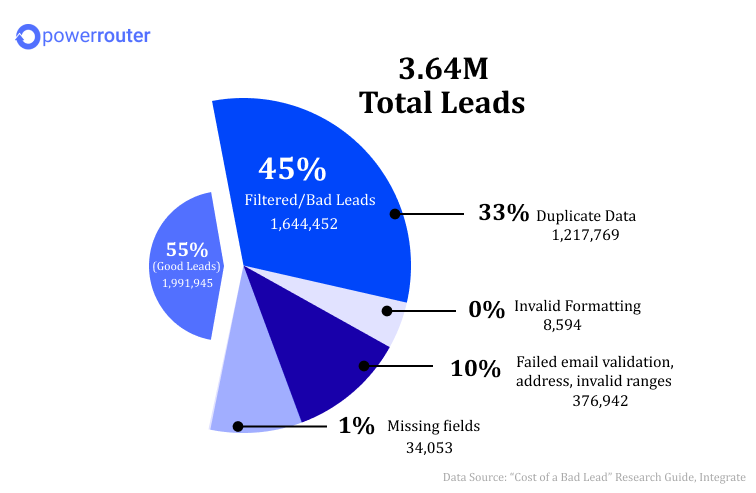
Increased Operational Costs
Managing duplicate CRM data translates to substantial, and often avoidable, operational costs. The process of cleaning, maintaining, and deduplicating records is resource-intensive, requiring both human hours and investments in specialized software tools and technology.
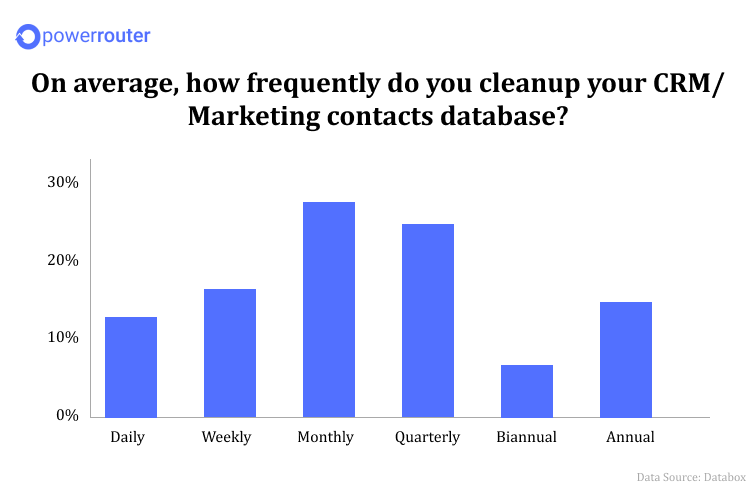
Reduced Revenue Velocity
Duplicate data is akin to friction in your revenue funnel. Sales teams, grappling with multiple records for the same lead, experience inefficient coordination. The outcome is a significant time lag, delayed lead responses, and, most crucially, a decreased revenue velocity. Speed matters in sales, and inefficiencies stemming from duplicate data can restrict your speed and business growth.
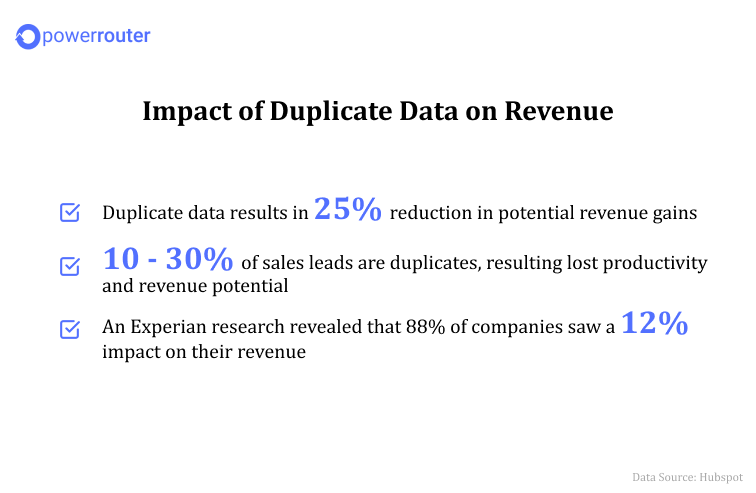
Wasted Resources
Marketing campaigns demand substantial resources, including budgets, time, and efforts. Duplicate data can lead to inefficient marketing strategies where the same customer or prospect receives redundant promotional materials. This not only wastes resources but also diminishes the impact of campaigns.
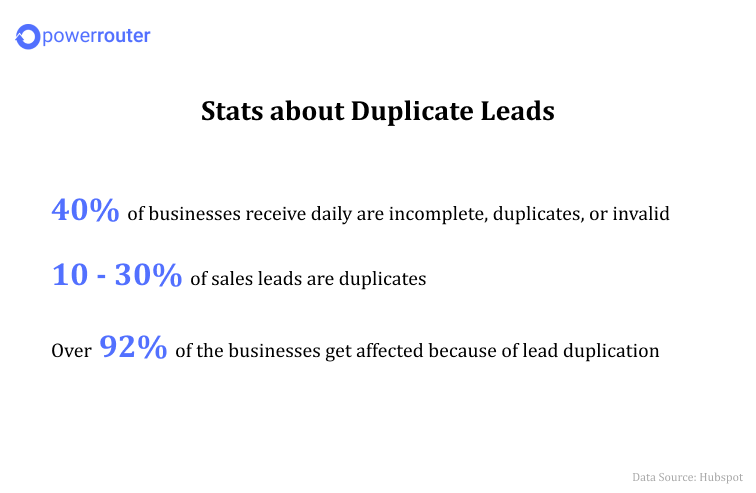
5 Ways to Deal With Duplicate Data for B2C Companies
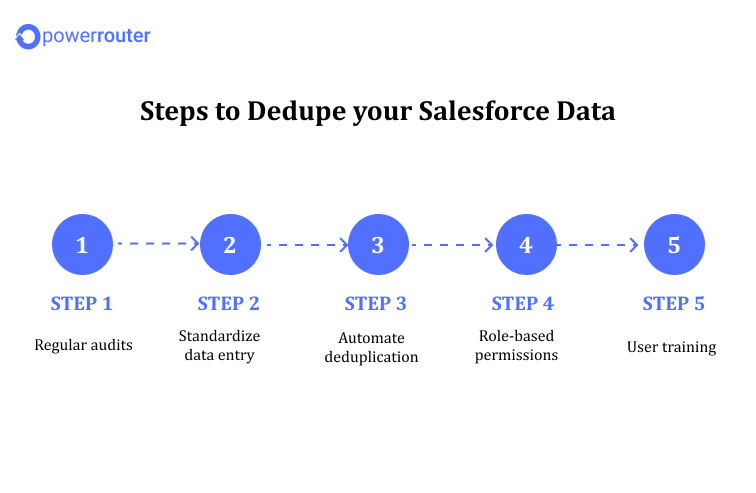
Regular Data Audits
Schedule regular data audits to review the quality of your CRM data. Assign responsibilities for data cleanup and enforce routine checks to identify and address duplicates.
Strict Data Entry Policies
Create clear and concise data entry guidelines for all CRM users. These guidelines should cover naming conventions, formatting, and data categorization. Ensure that all team members understand and follow these guidelines.
Automate Duplicate Detection
Invest in data deduplication software that can identify and merge duplicate records efficiently. Ensure it integrates into your CRM system seamlessly for regular automated processes.
Implement Role-based Permissions
Assign role-based permissions in your CRM to restrict access to sensitive data fields. Only authorized users should have the ability to modify critical customer information to prevent unintentional duplicates.
User Training and Awareness
Provide comprehensive training to CRM users, including your sales and marketing teams. Make sure they understand the importance of data quality and the impact of duplicate data on business operations.
Addressing these challenges isn’t merely an operational need; it’s a strategic imperative. Removing duplicate CRM data isn’t just about achieving data accuracy; it’s about enhancing decision-making, reducing unnecessary costs, accelerating revenue velocity, and optimizing resource allocation. It’s a fundamental step toward achieving revenue growth.
For B2C companies utilizing Person Accounts in Salesforce, managing and deduplicating data can be quite a challenge. If you’re looking for effective solutions, our comprehensive Person Accounts Guide is your answer. Discover industry best practices and valuable tips to streamline your data operations and maximize your CRM’s potential.
